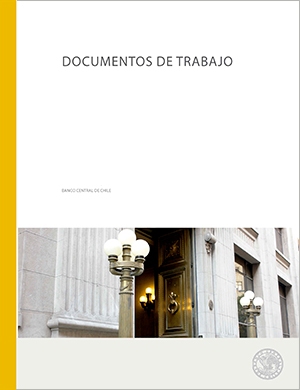Working papers N° 590: The Financial Accelerator Under Learning and The Role of Monetary Policy
Publications
Working papers N° 590: The Financial Accelerator Under Learning and The Role of Monetary Policy
Autor: Claudio Soto , Juan Pablo Medina
Description
Financial frictions have been shown to play an important role at amplifying business cycles fluctuations. In this paper we show that the financial accelerator mechanism analyzed by Bernanke, Gertler and Gilchrist (1999), combined with adaptive learning, can amplify business cycle fluctuations significantly as the balance sheet channel interacts with endogenous asset price “bubbles”. These larger business cycle fluctuations are amplified in a non-linear way by the size of the shocks and by the degree of financial fragility in the economy determined by its leverage. Our preliminary results indicate that even in the presence of endogenous bubbles, responding aggressively to inflation reduces output and inflation volatility. If the central bank adjusts its policy instrument in response to asset price fluctuations, it may reduce output volatility and even inflation volatility in the short run. However, that monetary policy conduct leads to a surge in inflation several periods after the shocks. A policy that aggressively responds to changes in asset prices may marginally reduce output volatility with respect to a policy that reacts aggressively to inflation, but also at the cost of generating inflationary pressures.
Working papers N° 590: The Financial Accelerator Under Learning and The Role of Monetary Policy
Boxes and graphics

